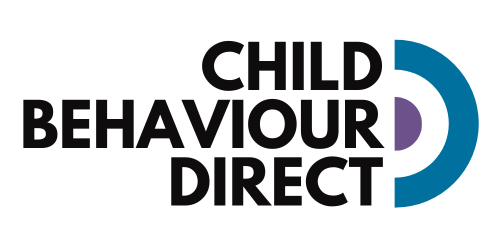ADVERSE CHILDHOOD EXPERIENCES
MINIMISE THE IMPACT AND CULTIVATE HEALING!
Our journey through childhood is full of unique experiences shaping who we become. When I began my career at 18, working with children in a local County Council Day Nursery, I was introduced to a diverse group of young children from different backgrounds.
Many of these children were victims of Adverse Childhood Experiences (ACEs). Sadly, in varying degrees, their circumstances had taken away the usual child-like joy and wonder of life and replaced this with challenging, worrying behaviours.
Their emotional scars could be seen on their faces as fear, nervousness, unease, and sadness in their eyes.
In this blog we will look at what ACEs are, how they affect children, and what we can do to avoid their lifelong negative impact.
BEING A PARENT IS THE HARDEST AND BEST JOB IN THE WORLD
IT'S ABOUT GUIDING CHILDREN TO BE THE BEST VERSIONS OF THEMSELVES
The Adverse Childhood Experiences (ACEs) study, led by Dr. Vincent Felitti in 1990, revolutionised our understanding and approach to managing childhood trauma.
ACEs are defined by childhood traumas, including:
Physical abuse
Sexual abuse
Emotional abuse
Physical neglect
Emotional neglect
A family member who is depressed or diagnosed with other mental illness.
A family member who is addicted to alcohol or another substance.
Witnessing a parent being abused
A family member who is in prison
Losing a parent to separation, divorce, death or other reasons.
These experiences have been linked to a wide range of physical and mental health issues later in life, including a propensity for developing substance abuse problems, engaging in risky behaviours, and suffering from severe health conditions such as heart disease and cancer. The ACE study underscored the long-term impact of childhood trauma on overall health and well-being, which has been pivotal in shaping approaches to early intervention and prevention programs.
Children who have experienced ACEs often struggle with emotional regulation, have challenging behaviour, don't reach their full potential, and struggle to form trusting relationships.
As parents, caregivers, educators, and members of society, it is our collective responsibility to create nurturing environments that foster healing and understanding. Instead of merely reacting to challenging behaviours, we need to delve deeper and address the root causes underlying them.
Here are three key factors that play a pivotal role in minimising the impact of ACEs and cultivating healing
1
CREATE SAFETY AND STABILITY
We can help children through adverse childhood experiences, such as divorce and separation, by creating a safe and stable environment where children feel secure, loved, and protected.
Creating regular quality time together, routines and schedules for meals and bedtimes provide a sense of familiarity and predictability. These routines act as a stabilising force, reducing the disruptive impact of adverse experiences and allowing children to feel secure and supported.
Open and honest communication, tailored to their age, plays a vital role in helping children understand the reasons behind divorce. which will hopefully alleviate confusion or self-blame.
By fostering a safe and stable environment, we lay the foundation for trust, understanding, and healing. This approach empowers children to navigate the challenges of adverse childhood experiences with resilience and sets the stage for their overall well-being and growth.
2
BUILD TRUST
Building trust in any relationship is vital, especially during challenging times when trust may be fragile. In the hope of promoting healing and helping children to overcome the wounds caused by ACEs, cultivating trusting connections becomes paramount.
We can build trust and restore relationships by offering unwavering support, active listening, genuine empathy, and understanding.
By fostering this trusting relationship, we provide the invaluable support they need to build resilience and move through difficult times. Trust is vital to the healing process, enabling children to rebuild their sense of security, develop resilience, and ultimately thrive.
3
EMOTIONAL SUPPORT
Supporting children's emotional well-being is vital in life, especially when they have experienced adverse childhood experiences (ACEs), such as having a parent in prison. Creating a safe space where they can freely express their emotions without judgment is essential for their journey of healing and growth.
Encouraging healthy coping strategies becomes even more important in such circumstances. For instance, introducing deep breathing exercises, journaling, or engaging in creative outlets like art or music can provide valuable outlets for children to process and express their emotions. This allows them to release pent-up feelings, gain self-awareness, and find inner strength during challenging times.
For example, a child with a parent in prison may feel a mix of emotions such as sadness, anger, or confusion. Emotional support helps them navigate the complexities of their situation, fostering their healing and empowering them to develop resilience despite the challenges they face.
As parents, every action we take to minimise the effects of adverse childhood experiences will help our children grow up resilient, happy and thriving. It is not always about what happens to us that leaves a lasting negative impact, but how it makes us feel and how parents manage to navigate through it.
By being conscious parents, we can move our children beyond their adverse experiences and nurture their transition towards a healthier, more joyful adulthood. As parents, our love and presence can become the catalyst for breaking cycles of trauma, minimise the impact and cultivate healing!
All the best,
Ruth
